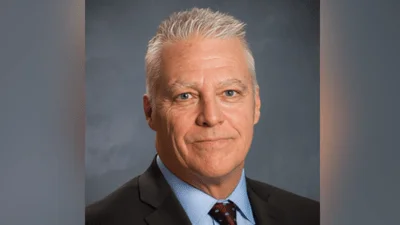As the clock ticks down toward the new year, budget talks remain at an impasse in Illinois and the stopgap budget will expire on Dec. 31.
The legislature adjourned for the year without approving a budget. While talks continue, little progress has been made toward negotiating a balanced budget for the remainder of fiscal 2017, which ends in roughly six months.
A power struggle between Republican Gov. Bruce Rauner and House Speaker Mike Madigan (D-Chicago) over the Illinois budget began after Rauner's election in 2014. Rauner brought his "Turnaround Agenda" to the table, which incorporated reforms that would make Illinois more business-friendly while stabilizing spiraling, out-of-control spending.
Madigan, who has been speaker of the House for 31 of his 45 years as a representative, refused to discuss any changes or reforms. When Rauner stood his ground and vetoed 19 of the 20 budget bills presented in 2015, Madigan refused to bring another budget forward. Only an education budget was signed, which allowed K-12 schools to operate in 2015-2016.
Fast forward to May 2016. Budget talks were again stalemated as Rauner faced off with Madigan and the Democratic majority in the state House and Senate. Madigan presented an all-or-nothing budget bill to the House, which promptly passed it and sent it to the Senate, which refused to pass the $7 billion in-the-red budget. The legislature adjourned and left the state without a budget for the second year in a row.
A temporary stopgap budget was negotiated and passed in a flurry of activity in late June. It funded K-12 and higher education and some essential services. When Rauner signed it, he indicated that part of the deal included reforms that would enable the legislature to cut costs and reduce spending.
When the legislature reconvened in late November and early December in its "veto session," it was understood by the Republican members that a new budget would be negotiated and passed before the stopgap budget expired. Instead, an education bill that would bail out the Chicago Public Schools (CPS) pension fund with $215 million was presented to Rauner, but the pension-reform bill that was promised by Democrats in June did not materialize. Rauner vetoed the CPS pension legislation.
Republican lawmakers have called for a balanced budget, while their Democratic colleagues appear to be stalling. At a press conference Sunday, Madigan told reporters that the budget was discussed for approximately 14 minutes.
"[F]rom 10:16 (a.m.) to 10:20 and from 11:15 to 11:25," Madigan said.
Madigan blamed Rauner for the lack of discussion. He said Rauner used most of the 90-minute meeting to push for consolidation and elimination of some of the state mandates placed on local governments. Republican members disputed that claim. Senate Republican leader Christine Radogno (R-Lemont) said Madigan and state Rep. Greg Harris (D-Chicago) were offered time to discuss the budget, but were not prepared.
Madigan's stalling tactics have led Republican lawmakers to believe that he is trying to force a crisis and another stopgap budget. Harris disagreed and said changes to the federal budget by President-elect Donald Trump may affect the Illinois budget.
“Should we come to some kind of budget agreement now and six months down the road look back and say, ‘Gosh, we wish we had anticipated one of these changes and now we’re sort of stuck’ — that’s not going to be a very good outcome for the people of Illinois,” Harris said. "So we need to be very careful and deliberate."
While Harris defended Madigan's request for more information about the new federal administration's budget impacts, Radogno said the clock is still ticking. Without negotiation and compromise, the state will be left without a budget on Jan. 1.
“People of this state don’t want more of the same,” Radogno said. “We have time to do it. They’re stalling. They’re running out the clock, and we will continue to engage in every way we can and be ready to move with legislation as soon as they’re willing to do that.”






 Alerts Sign-up
Alerts Sign-up